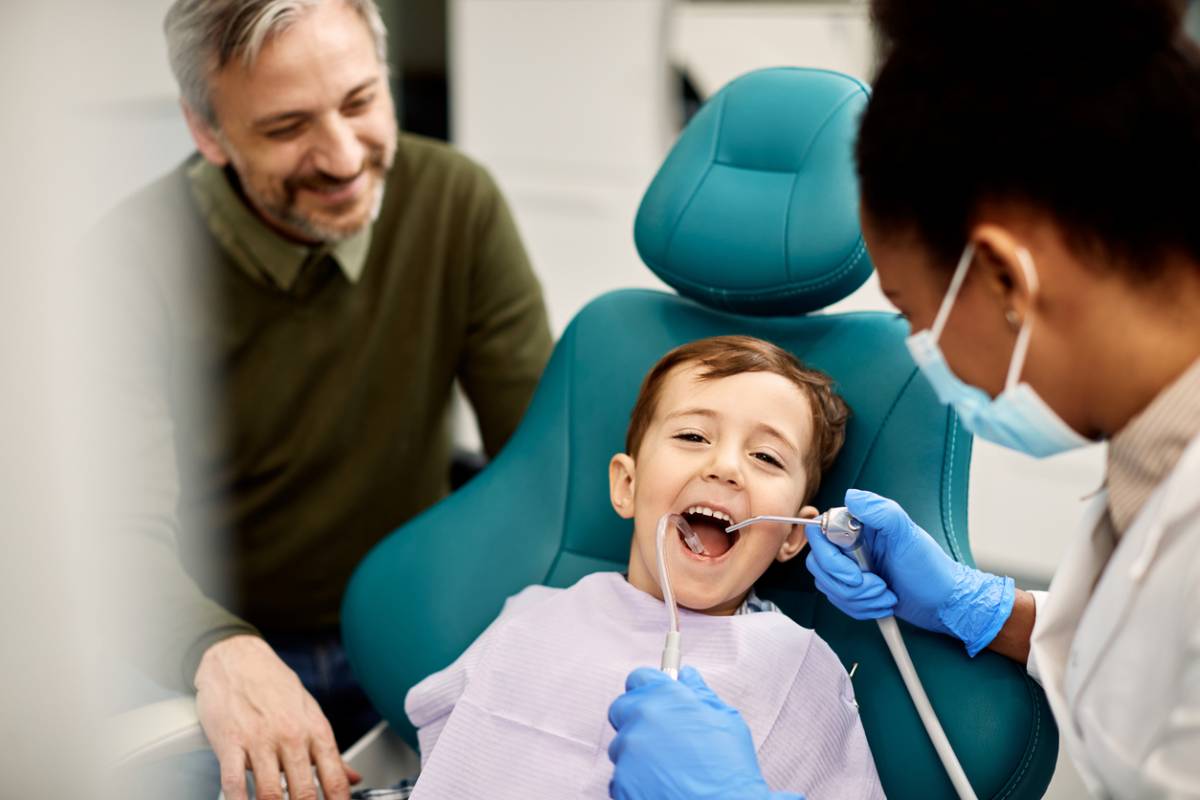When it comes to taking care of your teeth or those of your loved ones, you should have a fairly comprehensive understanding of the different dental care providers. All dentists provide oral health care. However, some dentists specialize in one area and other dentists in another. When you are a parent, for example, you must know the difference between a pediatric dentist and a general dentist so you can make informed decisions for your family. While both professionals take care of oral health, there is a significant difference in their training, approach, and expertise. So how does a pediatric dentist differ from a general dentist, and why does this distinction matter? We answer this and more below.
How Does a Pediatric Dentist Differ from a General Dentist?
Training and Education
One of the primary differences between a pediatric dentist and a general dentist is the training and education. The first step to becoming a dentist or earning a DDS or DMD is to attend and finish an undergraduate or bachelor’s degree and major in biology, chemistry, or other pre-medicine courses. These courses will help make it easier to finish the next level of education that aspiring dentists need to complete, which is dental school. General dentists can treat people of all ages and are trained to treat a wide range of oral health issues. They are more experienced and skilled in adult dental concerns like crowns, fillings, and bridges.
Meanwhile, pediatric dentists need more than just dental school. They also need two to three years of specialized training that focuses on child psychology, growth and development, and treating oral and health issues common to children. Pediatric dentistry training emphasizes managing dental anxiety, handling children with special needs, and understanding the nuances of developing teeth.
Expertise in Child-Specific Issues
Children’s teeth and oral structures are significantly different from those of adults, and pediatric dentists are experts in managing these differences.
Monitoring Oral Development
Pediatric dentists ensure that permanent teeth emerge properly. To do this, they have to keep a close eye on the growth of a child’s jaw and teeth.
Keeping Baby Teeth Healthy
Although they are temporary, baby teeth still play an essential role in a child’s oral health, which also affects their overall health and well-being. Pediatric dentists work to keep these teeth healthy and treat any issues to avoid future complications.
Addressing Unpleasant Habits Like Thumbsucking and Pacifier Use
Pediatric dentists advise or guide parents on managing these habits, as they tend to negatively impact dental alignment and oral development.
Preventing and Treating Early Tooth Decay
Pediatric dentists can protect young teeth and prevent tooth decay, which children are very susceptible to, by employing preventive measures like fluoride treatments and dental sealants.
Tailored Approach to Patients
Because dentists and dentist clinics can be intimidating for children, pediatric dentists make their clinics warm and welcoming places. A pediatric dentist’s office usually features child-friendly decor, toys, and engaging or educational activities.
They are trained to manage dental anxiety in children. They can put anxious children at ease by using positive reinforcement, calm communication, and child-friendly language to explain the tools and procedure.
On the other hand, although also skilled in dental care, general dentists do not have the same level of training in meeting the psychological and emotional needs of young patients. Their communication styles and language are for adult patients.
Focus on Preventive Care
Pediatric dentists help children develop healthy habits that can lead to a lifetime of good oral health. They educate parents and children on proper brushing and flossing techniques, the importance and role of a healthy diet in oral health, and how to minimize sugar intake.
General dentists also promote oral care, but the focus is already on adult-specific concerns or dental problems, such as gum disease prevention and oral cancer screenings.
Specialized Care for Children with Special Needs
Because of their additional training, pediatric dentists are equipped to handle children with special needs. They understand the sensory, behavioral, and physical challenges that often accompany their specific conditions, and this understanding enables them to customize their approach and communication to provide a more pleasant experience for both the patient and the caregivers.
Tips for Transitioning to General Dentists
It is natural for children’s dental needs and concerns to change as they grow into adults. When they reach the age of 18, pediatric dentists often help their patients transition to a general dentist who can address their adult dental concerns.
Visit Your Dentist Today
Pediatric dentists and general dentists both provide oral health care to their patients, but their expertise, skills, and approaches differ significantly. With their tailored approach, pediatric dentists are able to address the unique needs of children from infancy through adolescence. By understanding what makes the two types of dentists different, you will be able to correctly choose the right professional to support your child’s oral health. If you need a pediatric dentist for your child, contact us to book an appointment.



 )